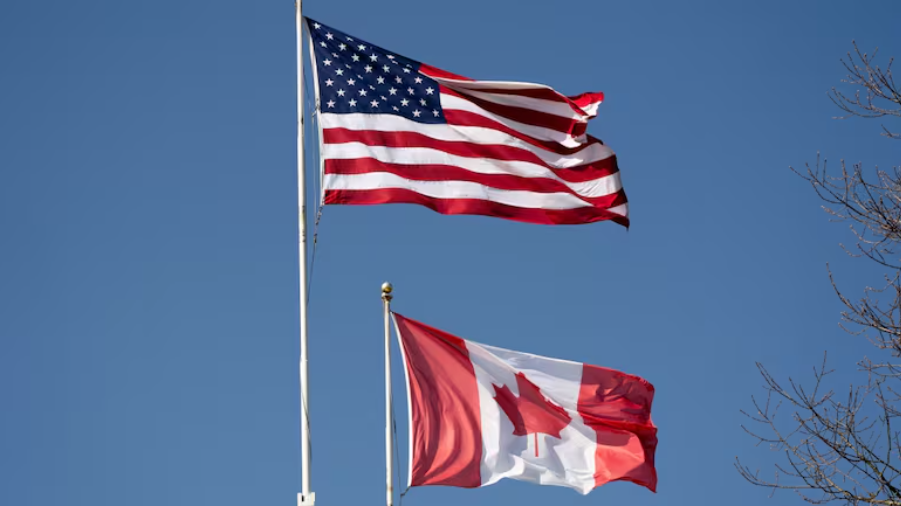In these disorienting times, Canadian leaders are navigating a deeply uncertain world. On the day the United States launched a global trade war, Alberta Premier Danielle Smith chose to see the glass half full, emphasizing that the U.S. had decided to “uphold the majority of the free trade agreement” between the two countries. While some tariffs remained, she claimed “the worst of this tariff dispute is behind us.”
However, some aspects of her statement may be up for debate, especially regarding whether the “worst” is truly behind us and whether the issue is merely a “tariff dispute.” Smith’s perspective is understandable, given her hope that the conflict could be paused until after the federal election.
At a rally in Kingston, Ont., Conservative Leader Pierre Poilievre took a different view, criticizing what he called “another unfair attack” by the U.S. on Canada’s economy, accusing the president of “betraying America’s closest friend.”
This raised a question: Is it still fair to describe Canada and the United States as “friends”? Do they share common values and goals? Does the United States even view any nation as a friend anymore? Jason Stanley, a scholar of fascism, recently remarked that both Canada and Ukraine are now “bordered by autocratic dictatorships.”
Prime Minister Mark Carney, speaking Thursday, emphasized that the “old relationship” with the United States, based on “economic integration and tight security and military cooperation,” is “over.” He suggested that the world is changing, and the old order is passing away.
There is general agreement that Canada must act urgently in response to the situation, but there appears to be a split in how Liberal and Conservative leaders are approaching the unfolding turmoil.
Poilievre’s Approach: Renegotiation and Military Spending
In a speech Wednesday morning, before Trump’s latest tariffs were announced, Poilievre proposed renegotiating the Canada-United States-Mexico Agreement (CUSMA) and suspending tariffs during the process. However, it’s unclear whether Trump would be willing to engage in this manner, given his history with tariffs during CUSMA negotiations.
Poilievre said he would protect Canadian sovereignty and key industries, but added that increased defense spending would be one of his concessions to the U.S. He committed to spending 2% of Canada’s GDP on military expansion, which he hoped would be funded by expanded trade.
Poilievre argued that Canada could either face an “unprovoked attack” on its economy, or the two countries could “trade even more” and work together to address global challenges. This mirrors some suggestions from former Prime Minister Justin Trudeau and Ontario Premier Doug Ford about a new “strategic alliance.”
Carney’s Starker Outlook on U.S. Relations
Prime Minister Mark Carney, on the other hand, held a bleaker view, emphasizing that Canada’s relationship with the U.S. had fundamentally changed. He stated that the “system of global trade” that Canada relied on since the end of World War II is “over.” Carney suggested that Canada must now take a leadership role in building alliances with other nations that value international cooperation and free trade.
Carney proposed that Canada should explore a potential customs union with the U.S., although he acknowledged that moving closer to the U.S. might carry “tremendous risks.”
A Nation Divided?
The rhetorical differences between Poilievre and Carney reflect a broader division in Canadian public opinion. According to the Angus Reid Institute, 80% of Liberal supporters think Canada should confront Trump, while 50% of Conservative supporters believe Canada should negotiate for lower tariffs.
As the federal election approaches, Canadians face the larger question of how to view their relationship with the United States and the shifting dynamics of global trade.








